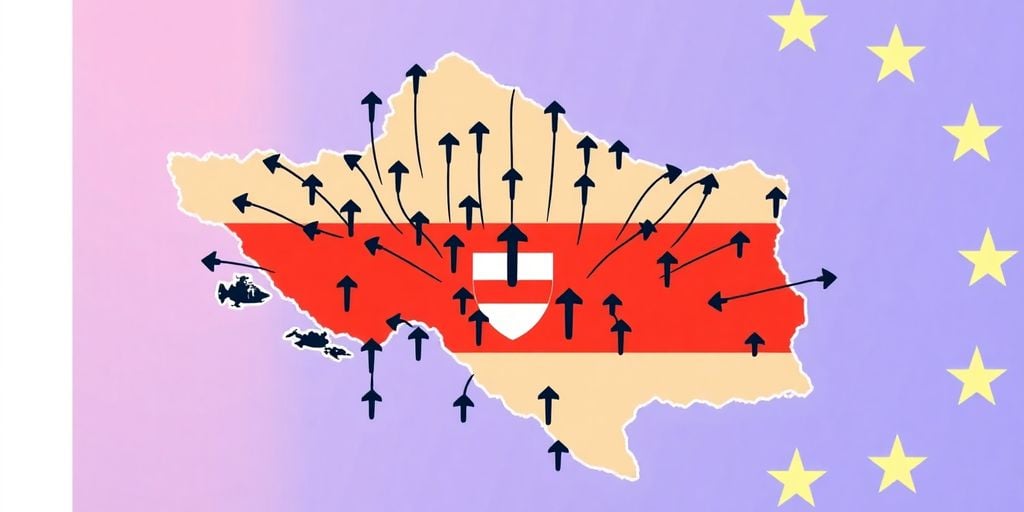Croatia Ranks Second in EU for Citizens Living Abroad
New data from the European Parliament, utilizing Eurostat figures, reveals that Croatia has the second-highest proportion of its citizens residing in other European Union member states. This trend highlights a significant migratory pattern within the EU, particularly affecting newer and smaller member nations.
Key Takeaways
- Croatia has 575,000 citizens living in other EU countries, representing 14.9% of its population.
- Romania leads the EU with 16.28% of its population living abroad.
- Bulgaria ranks third with 11.68% of its population residing in other EU states.
- Larger Western European nations like Germany, France, and Malta exhibit the lowest percentages of citizens living abroad.
Detailed Breakdown of EU Emigration
The report indicates that 575,000 Croatians are currently living in another EU member state. This figure translates to 14.9% of Croatia’s total population, placing it just behind Romania, which has 3.1 million citizens abroad, accounting for 16.28% of its population. Bulgaria follows in third place, with 753,000 citizens living elsewhere in the EU, which is 11.68% of its population. Portugal and Luxembourg are also noted among the top five countries with the highest share of citizens living abroad.
Contrasting Trends Across the EU
In stark contrast, larger Western European countries show significantly lower emigration rates. Germany reports 751,000 citizens living abroad, representing 0.9% of its population. Similarly, France has 626,000 citizens abroad, also at 0.9%, and Malta has a mere 5,000 citizens living in other EU countries, equating to 0.9% of its population. This data suggests a general pattern where smaller and newer EU member states, particularly those in Eastern and Southern Europe, tend to have a higher proportion of their populations living and working in other EU countries compared to the larger, more established Western European nations.






